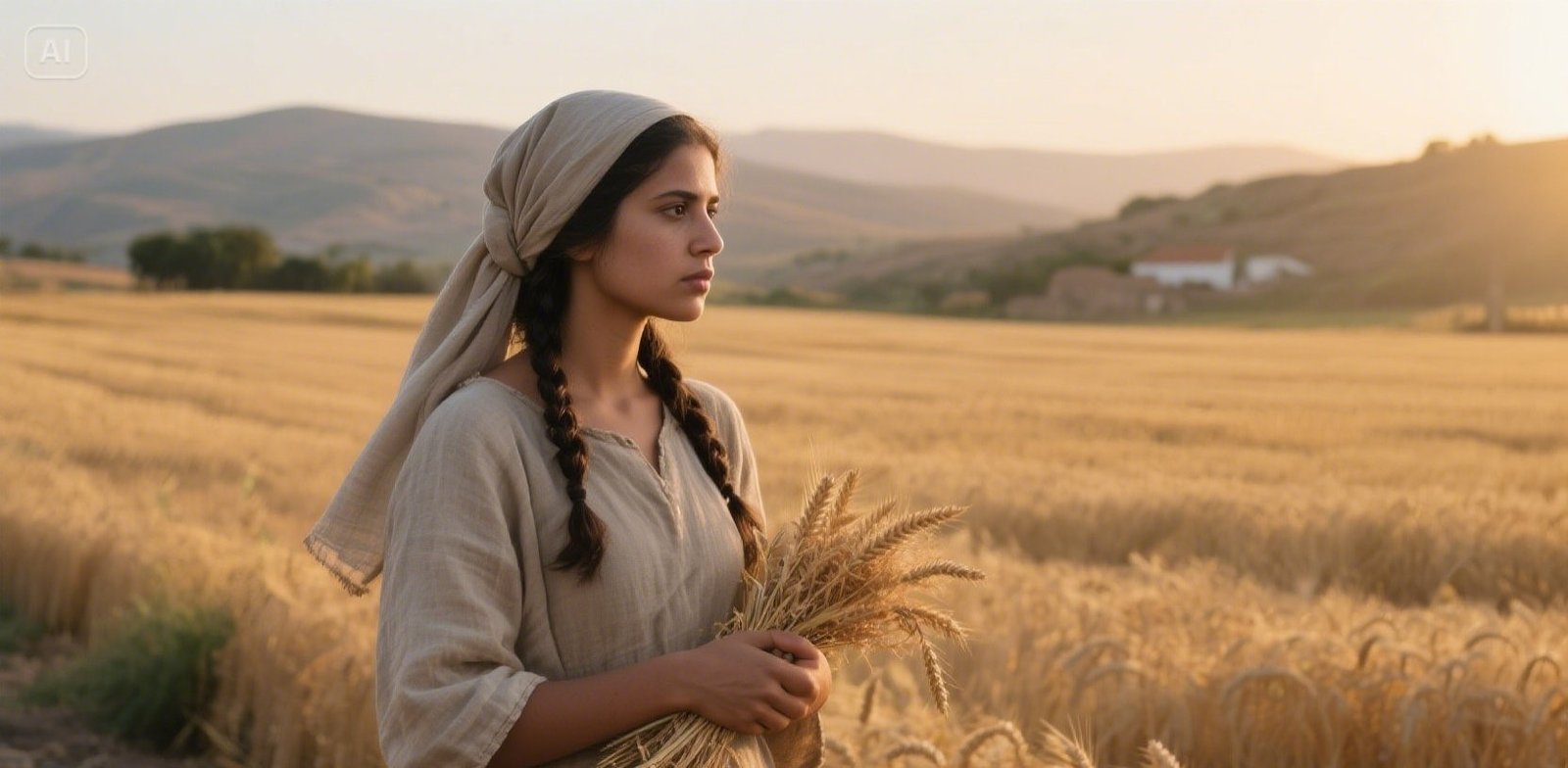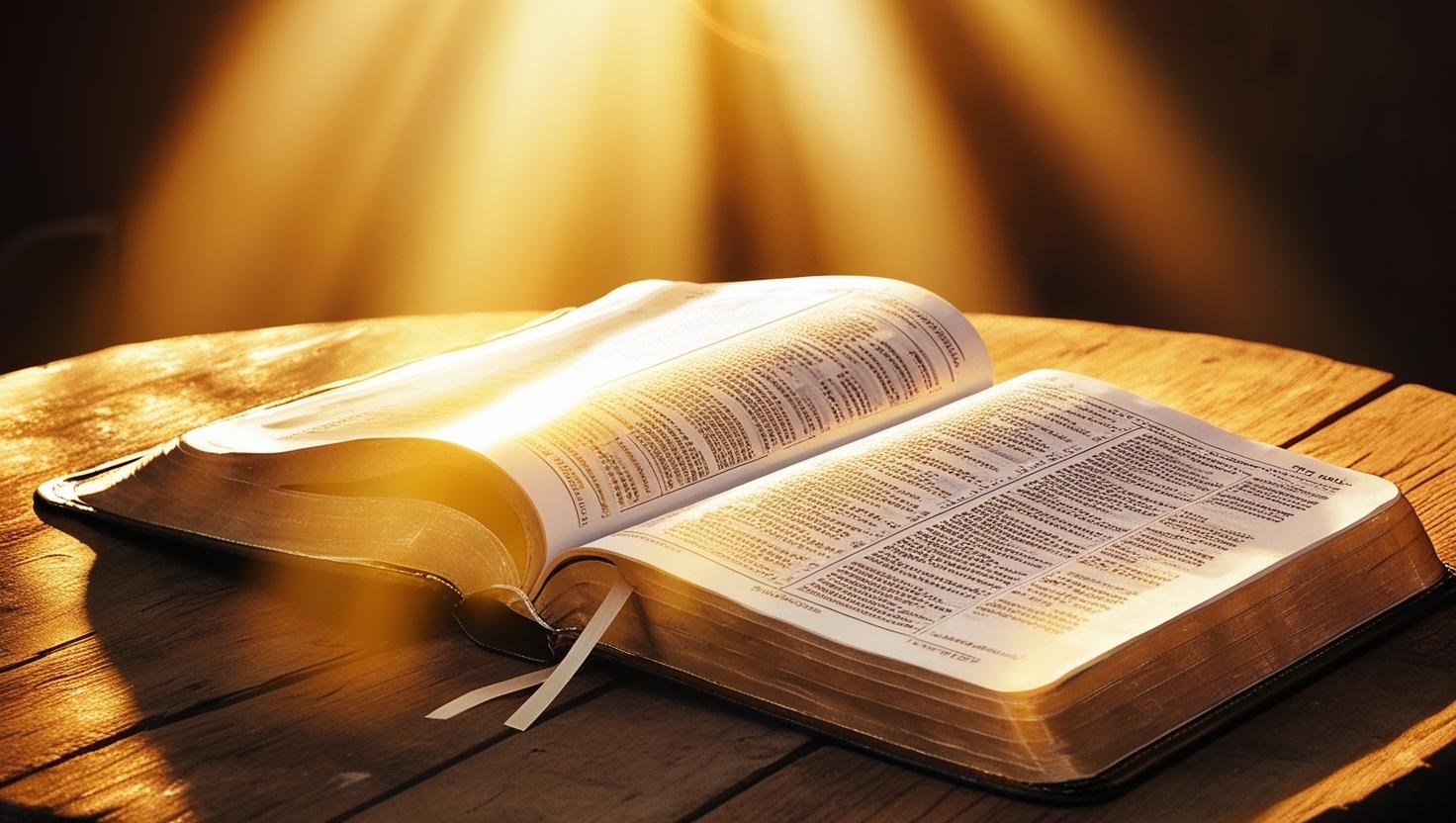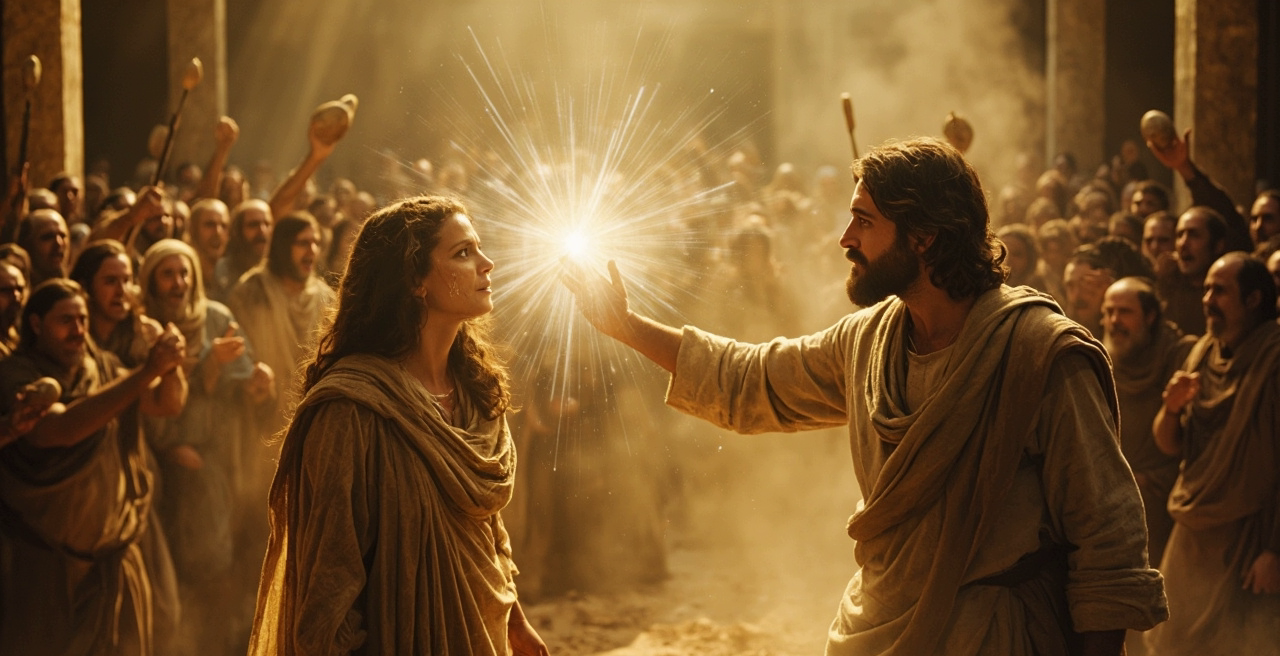
God’s Perfect Timing: The Story of Ruth, Faith, Loyalty, and God’s Divine Design
Ruth’s story is often quietly nestled within the Old Testament, but its impact reverberates through the entire biblical narrative—from Genesis to Revelation. It’s more than a tale of loyalty or love. It is theological, prophetic, and practical. Ruth is not just a woman of kindness—she is a link in the royal and redemptive chain of Jesus Christ.
When Everything Falls Apart: Ruth’s Beginning in Moab
The Book of Ruth opens during the time of the Judges, a dark, chaotic era in Israel’s history. Famine drives Elimelek and Naomi from Bethlehem to Moab—enemy territory. There, Naomi’s sons marry Moabite women: Ruth and Orpah. But soon, all three women are widowed.
For Ruth, everything collapses—her husband, her home, her culture. And yet, in the ashes of loss, a divine decision is born.
“Where you go, I will go… your God will be my God.” (Ruth 1:16)
This is not merely poetic loyalty. Ruth, a Moabite, turns from pagan idols and steps into the covenant of Israel. In this moment, she becomes more than Naomi’s daughter-in-law—she becomes a daughter of Abraham by faith.
Faith Lesson: Some of your most powerful spiritual choices will come during your hardest life seasons. Ruth’s greatest act of faith was not loud—it was loyal.
The Walk of the Faithful: Journey to Bethlehem
Ruth follows Naomi to Bethlehem, entering Israel as an outsider. She has no money, no male protector, no guaranteed welcome. And yet, she walks.
The city stirs at their return. Naomi, once called “Pleasant,” now calls herself “Mara” — “Bitter.” But Ruth remains silent, steady, and supportive.
Practical Reflection: Faithfulness isn’t always loud or dramatic. Sometimes, it’s quiet and consistent. Ruth didn’t preach—she showed up.
God’s Providence in the Mundane: Gleaning in the Fields
To survive, Ruth asks Naomi if she may glean behind the harvesters. This wasn’t glamorous—it was backbreaking, humble work reserved for the poor (Leviticus 23:22).
And “as it happened,” she ends up in the field of Boaz, a distant relative of Naomi’s husband.
“May the Lord repay you for what you have done… under whose wings you have come to take refuge.” (Ruth 2:12)
Boaz notices her—not for her looks, but for her character. Word of her loyalty has spread.
Spiritual Insight: You never know who’s watching your faithfulness. God sees. Others see. Ruth wasn’t trying to be seen—she was trying to serve. And that’s what opened doors.
Modern Application: In a world obsessed with platforms, Ruth teaches us the value of private faithfulness. The field you’re in may seem insignificant, but God can turn that field into a throne room.
A Night of Redemption: The Threshing Floor
At Naomi’s urging, Ruth approaches Boaz at night during the harvest. She uncovers his feet and lies there, symbolically requesting redemption under Jewish law (Deuteronomy 25:5–10).
This was bold. Risky. She was a Moabite widow approaching a wealthy, honorable man. But Boaz doesn’t shame her. He blesses her.
“All my fellow townsmen know you are a woman of noble character.” (Ruth 3:11)
Boaz sees not just her actions, but her virtue. He honors her.
Christ Connection: This scene is a foreshadowing of Christ. Ruth represents the Church—humble, uncovered, desperate for redemption. Boaz, a type of Christ, covers her.
“Spread the corner of your garment over me, since you are a kinsman-redeemer.” (Ruth 3:9)
This is the language of covenant. It’s not flirtation—it’s redemption.
Redemption Sealed: Boaz Steps In
Boaz doesn’t delay. He meets with the elders and redeems Ruth legally and publicly. There is another man with a closer claim, but when that man declines, Boaz steps forward.
He marries Ruth. She conceives a son: Obed.
“Praise be to the Lord, who this day has not left you without a kinsman-redeemer!” (Ruth 4:14)
Obed becomes the father of Jesse, the father of David. And generations later, from David’s line comes Jesus Christ (Matthew 1).
Theological Truth: Ruth, a Moabite woman—excluded from the assembly by Mosaic law—becomes grafted into the lineage of grace. This is not just a love story; it is a salvation story.
Five Life-Changing Lessons from Ruth
1. God’s Plan Isn’t Always Predictable, But It Is Always Purposeful
Ruth couldn’t see the end from the beginning, but her steps were ordered. Each act of faith unlocked a deeper level of grace.
“The steps of a righteous person are ordered by the Lord.” (Psalm 37:23)
2. Faith Requires Risk
Leaving Moab was risky. Gleaning was risky. Approaching Boaz was risky. But faith without risk isn’t faith.
“Without faith it is impossible to please God.” (Hebrews 11:6)
3. Obedience Opens Favor
She didn’t manipulate. She didn’t chase favor. She obeyed. Favor followed.
4. God Uses Outsiders to Fulfill His Purpose
God doesn’t use who society approves. He uses the willing. Ruth, the outsider, becomes a central figure in divine history.
“God chose the foolish things of the world to shame the wise.” (1 Corinthians 1:27)
5. Redemption Is Always Available
Ruth didn’t earn it. She received it. Like Boaz to Ruth, Jesus to us says, “Come. Be covered.”
How to Apply Ruth’s Story to Your Life
- Journal Prompt: What “Moab” is God asking you to leave?
- Action Step: Who in your life needs you to walk beside them like Ruth did for Naomi?
- Prayer Focus: Ask God to lead you to the right field. And while you wait, be faithful where you are.
Declare this aloud:
I may not see the full picture, but I trust the Painter. I may not understand the season, but I walk with the Author of Time.
A Closing Word of Hope
You are not forgotten.
You are not invisible.
The same God who saw Ruth in a barren field sees you today. He writes redemption into every broken chapter. All He asks is your “yes.”
Walk with Him. Trust Him. And when you look back, like Ruth, you’ll see—
His timing was perfect all along.



